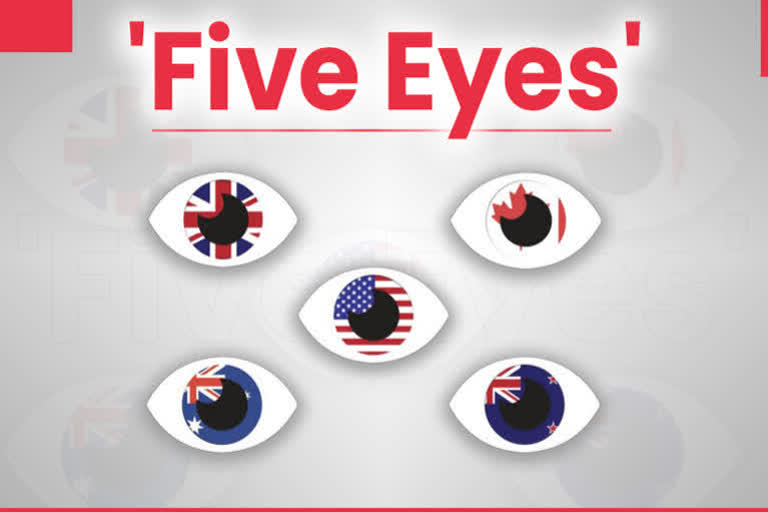New Delhi: In a landmark move that would completely align India with the US and its four key English-speaking allies, the US’ Subcommittee on Intelligence and Special Operations has drafted a bill for the National Defense Authorization bill for fiscal year 2022 where it has sought a view on whether India and three other countries—Japan, Germany and South Korea—can be included in the in the ‘Five Eyes’ intelligence sharing network.
Accordingly, the committee directed the Director of National Intelligence, in coordination with the Secretary of Defense, to provide a report to the House Committee on Armed Services, the Senate Committee on Armed Services, and the congressional intelligence committees, not later than May 20, 2022.
Set up in 1941, ‘Five Eyes’ is an exclusive and secretive club of spy rings of five governments—Australia, Canada, New Zealand, UK and US—that collaborate to intercept information within other countries to be used for diplomatic, security, military and economic benefits and gains. It is also the world’s oldest intelligence sharing spy network.
Seeking to know the benefits of such an expansion, the draft bill asks about the “nature of insights that each of these countries may be in a position to contribute, any technology limitations that prevent closer sharing and actions needed to remediate those technology limitations, identification of the risks associated with expanding intelligence sharing arrangements, and suggestions on how to safely incorporate each country into a closer sharing framework.”
The draft bill says: “The committee acknowledges that the threat landscape has vastly changed since the inception of the Five Eyes arrangement, with primary threats now emanating from China and Russia. The committee believes that, in confronting great power competition, the Five Eye countries must work closer together, as well as expand the circle of trust to other like-minded democracies.”
Read: BBC shuts down Christine Fair for talking about Pakistan harbouring terrorists
In the backdrop of brutal India-China border skirmishes since last year which has led to huge military build-ups in eastern Ladakh, and the US willingness to wean India to its camp, there has been speculation as to whether India may gain entry to the ‘Five-Eyes’ arrangement.
Already there have been a few developments on this issue.
On October 11, 2020, India had joined a meeting with ‘Five Eyes’ and Japan and together issued a joint statement in asking giant technology companies to provide solutions so that end-to-end encrypted communications including WhatsApp, Signal, Telegram, Facebook Messenger etc can be accessed.
The joint statement while not naming the Indian and Japanese signatories, named the others who included Priti Patel, UK secretary of state for home, William P. Barr, the then US attorney-general, Peter Dutton, Australian home minister, Andrew Little, New Zealand’s security and intelligence minister and Bill Blair, Canada’s minister for public safety.
Some days before the meeting, UK defence secretary Ben Wallace said the UK is looking to “deepening” the ‘Five Eyes’ by recruiting more countries in order to “send a message to China”.
Wallace had said: “Mutual help and mutual signalling about standing by each other is really important for us sending a message to China… In fact we are already working around some of those Asia groupings that allow international observers or indeed partner status. So we will be doing more of that.”
Before that, in December, 2019, US Congressman Adam Schiff, who chairs the House Permanent Select Committee on Intelligence, in a report had sought expanding the ‘Five Eyes’ by including India, Japan and South Korea so as to counter an increasingly powerful China.
While the idea of expanding ‘Five Eyes’ has been gaining currency for some time, the main stumbling block is understood to be the capability of the new entrant to maintain secrecy and control over the shared information which would expectedly be ‘top secret’.
Read: Javed Akhtar's remark on equating Taliban with RSS sparks row



